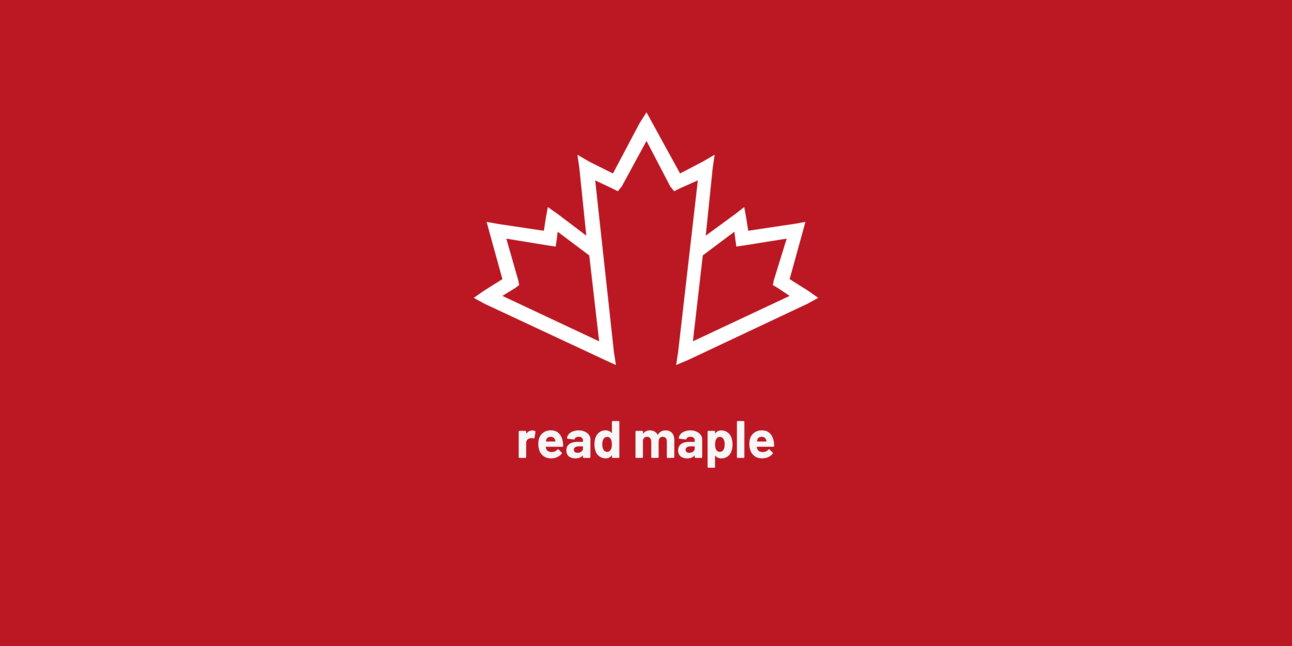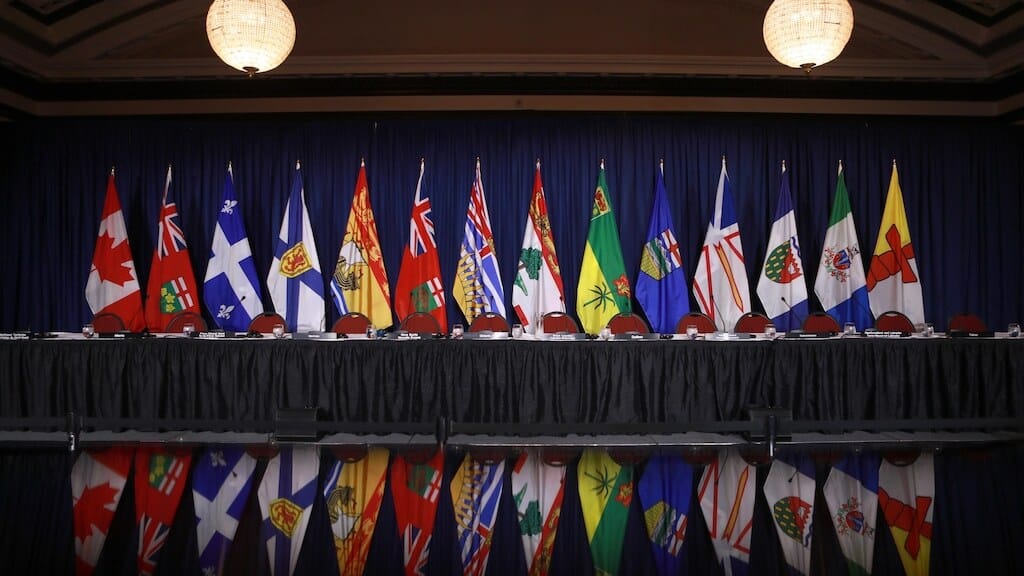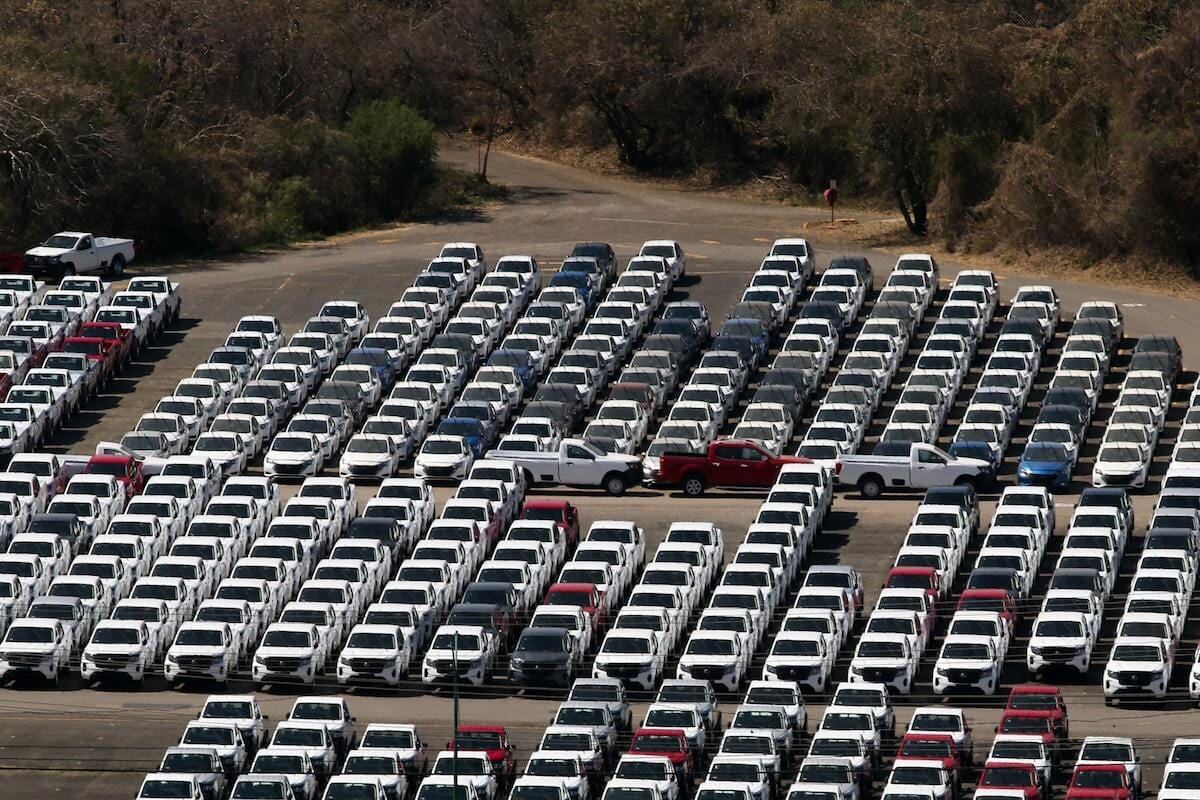- Read Maple
- Posts
- 🍁Caving or negotiating?
🍁Caving or negotiating?
Why critics are split on Mark Carney's latest move with the U.S.


Chad Hipolito/The Canadian Press
🇨🇦 Breaking down barriers
Hitting the July 1st deadline set by PM Mark Carney, the federal government has taken steps to eliminate the remaining barriers in place as they look to open up free interprovincial trade in light of the trade war with the United States.
Before the spring election, PM Mark Carney reduced the number of barriers in place but there were still “just shy of two dozen” exemptions in place due to national security reasons, mainly centred around the federal procurement rules in place when it comes to financial entities and transportation services.
The move, associated with the Liberals major bill before the summer, Bill C-5, aka the “One Canadian Economy Act” was put in place to eliminate red tape for Canadian businesses. Before the bill, some provinces got ahead of it on their own by signing agreements and memorandums of understanding to tear down some of their own internal trade barriers with other provinces.
🛑Not so fast
Experts say the steps taken so far are just the beginning of the process. Free trade isn’t a magical thing that can happen with a snap of your fingers on a certain day.
Internal trade experts say that this is now the “exciting” part. The starting gun has been fired by the federal government, and now the activity and work to go into free trade begin.
▶️A long time coming
The problem has been talked about for decades in Canada. The surprising part of all of this is that for the first time since the conversation started, the right moves are being made to address free trade within Canada, and this wouldn't have happened if not for President Trump’s love of tariffs and trade wars with close allies.
🤯How many billions!?
One study estimates that the existing internal trade barriers have cost the Canadian economy roughly $200-billion a year.
Bottom line: PM Mark Carney was dealt a tough hand assuming leadership of the Liberal Party and winning the election to remain Prime Minister, but the former banker is no stranger to tough hands having dealt with the fallout from the U.S. housing crash in 2008 and Brexit after that. PM Mark Carney has completed step one of his plan: the barriers to free trade within Canada are now gone, and he met his own July 1st deadline to do so. Now, the real work begins. What does free trade within Canada look like? What hurdles will need to be overcome? This is where the “fun” begins but all provinces need to play nice with each other and get work done rather than just talk about being harmonious.
🇨🇦 Canadian Headlines
⏯️Caving or negotiating? Depending on who you believe, PM Mark Carney either caved to President Trump, or rescinding the digital services tax was just a small move in part of a much bigger negotiation on trade with the United States. Some critics applaud the move as being strategic and hope that more nations that have enacted a digital services tax would revoke their own, while others criticize the move as Canada surrounding its tech sovereignty and because the U.K. was able to keep its own digital tax and still negotiated a trade deal with the United States. The digital services tax was expected to rake in billions in revenue if enacted from America’s tech giants.
🗳️August 18th election. No, not for the vast majority of us. But in Alberta, particularly in the Battle River-Crowfoot riding, residents will return to the booth to vote to allow Pierre Poilievre, the current Conservative leader who’s looking into Parliament through a window, a path back to a seat in the house after he was parachuted into the riding.
🏛️Minimum wage for gig workers. In Ontario, new rules went into effect as of July 1st allowing gig workers to be entitled to the $17.20-an-hour minimum wage for active time. This means gig workers will now be paid for the time between accepting a trip request and completing it.

Margarito Perez Retana/Reuters
🇲🇽 Autos: Mexico solid, Canada struggles
Facing trade wars just like many other allies, Mexico’s automotive industry has been able to withstand the struggles that others have faced during the trade war and tariffs enacted by President Trump, especially compared to Canada.
In April, Mexico’s auto exports fell by 11%. During the same month, Canada’s exports fell by 23%. In May, Mexico saw only a 3% decline in exports, and while Canada’s numbers for the month won’t be available until early July, the expectation is that Canada’s exports will show a similar decline as in April.
The United States is the destination for 90% of both, Canada and Mexico’s auto exports.
🤔What gives? Mexico had become a major part of many car manufacturer’s global plans. Carmakers around the world poured billions of dollars into assembly plants and supply lines largely due to the low labour costs. Ford, GM, Chrysler, BMW AG, Audi, Toyota and Nissan are in the Mexican market. China is in the early stages of building its assembly plants in Mexico as more countries and companies recognize the efficiency and low cost of labour as Mexico’s industry services the North American market.
While some want to pump the brakes on assuming Mexico won’t end up seeing sharp declines, there have been no efforts to pull production out of Mexico for three reasons: massive investments numerous carmakers have made in Mexico; low production costs; and the shortage of labour in the U.S.
🇨🇦Canada lags. Unfortunately for Canada, the country’s auto industry has seen sharper declines during the trade war because of the lack of investments made in the country by carmakers over the years. Mexico’s plants are also able to be the sole source for many vehicles and components, whereas plants in Canada manufacture vehicles that are also made in the United States and Mexico.
Canadian automakers were pulling back even before tariffs, but since they arrived, thousands of layoffs from the auto sector have happened.
🇺🇸Plans for U.S. expansion. Despite the advantages of the Mexican market, brands such as BMW, Audi, Volkswagen and more International brands face the full 25% tariff due to higher non-U.S. content that goes into manufacturing their vehicles. This levy has led the Volkswagen group to look into building a U.S. factory. General Motors recently stated it would spend $4-billion over the next two years at three U.S. plants as it looks to shift production and investment from Mexico into the States.
🏦 Numbers
🥵46.6 degrees (Celsius). Record-breaking heatwaves have a hold on Europe as Spain and England recorded their hottest June ever. The UK as a whole recorded its second warmest June since 1884, Portugal’s mainland saw a daily high of 46.6 degrees Celsius, and wildfires have forced evacuations in Turkey and Greece.
🏎️$40-million. “At least.” At this point we already know about the mega-popular summer blockbuster, F1 The Movie, but did you know that the sponsors in the movie are real? A dozen brands paid a hefty price to sponsor the fictional APX GP team from the movie as the total dollar amount coming from sponsorships was “at least $40-million.” Expensify, the main sponsor for the fictional team, is estimated to have paid in the 8-figure range as it looks to raise its real-world revenue and build global brand awareness.
💳1.83 million points. If you know anything about credit card points, you know they can net you some sweet discounts on travel (or gift cards if you’re into that). What you wouldn’t expect to use your credit card points on is a tariff bill. One CEO in the United States used his “last financial lifeline” and cashed in 1.83-million American Express rewards points to pay an $11,000 tax bill. That could have been a lot of business class travel…
🚨 More Headlines
🇵🇸Ceasefire? Late Tuesday evening, President Trump said Israel had agreed to conditions to finalize a 60-day ceasefire in Gaza. Trump says he will work with all parties to end the war and hopes that Hamas takes the deal.
🥊Trump vs. Musk escalates. After fighting publicly and making up a month ago, Elon Musk and Donald Trump went at it again. Elon Musk called President Trump’s “big beautiful bill” an abomination due to the exploding deficits. Trump responded on Truth Social threatening to cut Elon Musk’s government contracts and head back home to South Africa. When asked the following day if Trump would want to deport Musk, who is now a U.S. citizen, Trump said “I don’t know, we’ll have to take a look.”
🇺🇸”Big beautiful bill” passes. It took the old-timers in the Senate back to their all-nighter college days, but Trump’s “big beautiful bill” passed narrowly, with a 51-50 vote after Vice President Vance broke the tie. The whopper of a bill (1,100 pages) locks in tax cuts, scraps taxes on tips and overtime and pours billions of dollars in federal funding into the military and immigration spending. Cuts to Medicaid, SNAP and renewable-energy incentives (which is what got Elon Musk so frazzled) were included in the bill, leaving millions of Americans with more questions about what’s next.
🤖Big blow to AI. Speaking of the “big beautiful bill,” one of the sticking points of the bill was removing a provision that barred states from implementing their own regulations on AI for 10 years. At 4:30am on Tuesday, the provision was removed after a near-unanimous vote after attempts to shorten the window. Unsurprisingly, everyone’s friends at Big Tech were highly in favour of the provision being in the bill, because why would they want rules for what they can do with AI?
🇩🇪Arrest made on potential Iranian spy. A Danish man was arrested on suspicion of spying in Germany on behalf of Iran. German prosecutors say the man was gathering info “in preparation for further intelligence activities, possibly including terrorist attacks on Jewish targets.” The Iranian embassy in Berlin went on the defensive, calling the accusations unfounded and dangerous.
💭 ICYMI
🇨🇦Mike Myers on “elbows up”. “We love Americans. But we can love Americans and not want to be Americans.” Mike Myers explains the impulse decision to raise his elbow on Saturday Night Live and reveal a “Canada is not for sale” t-shirt that started a movement.
🔋High-end electrics are failing. Electric car models from luxury brands such as Mercedes, Porsche and Audi are struggling. From premium price tags, some in the six-figures, to paltry battery range compared to their gas counterparts, the math just isn’t mathing for consumers. Experts say EV growth is being driven by affordable options - think $25k.
🏀Masai Ujiri’s firing no coincidence. It was a shock to Toronto Raptor fans, but the writing was on the wall. With Edward Rogers soon to have majority control over MLSE, he wasted no time in cutting what he thought was a contract agreement “too lucrative” for Masai Ujiri, which included $15-million a season and incentive paid tied to the value increase of the franchise.
😊 Not everything needs to be serious…
Not everything needs to be serious and dreary. We can smile at the news too, and one of my goals is to end every edition with a story that you wouldn’t ordinarily see in the news, but that will hopefully make you smile.
“Did you save my life?” In a story that hits close to home as it happened in Ottawa, a man went to Reddit asking the very question after he suffered a post-run cardiac arrest. While a call was made to paramedics, a mother on a walk with her daughter was in the area and was the bystander who administered CPR to save his life. Word got back to her, and the two connected with plans to meet.